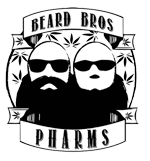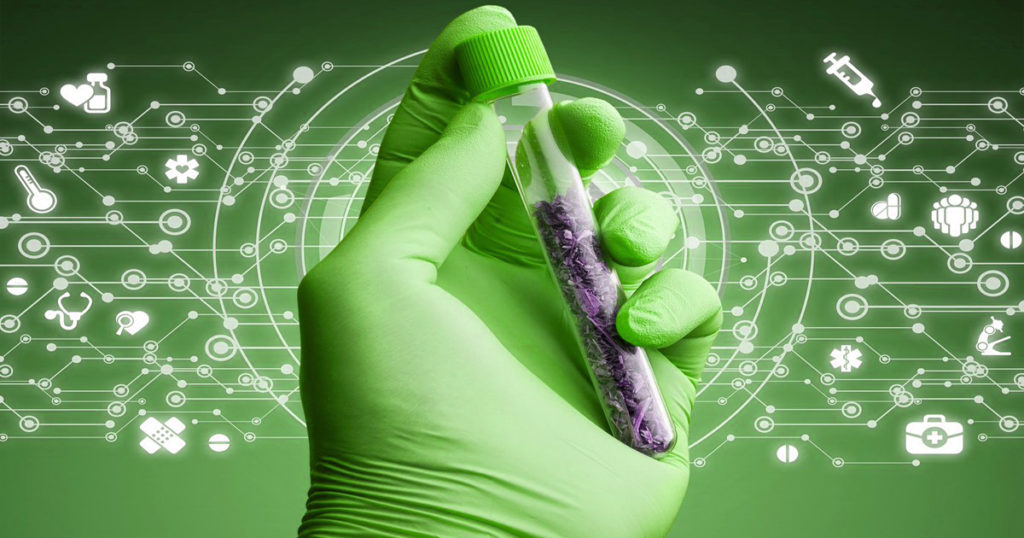
On two separate occasions in the past year, just here in California, we have seen headlines about large numbers of cannabis products destined for the legal retail market failing necessary third party lab testing that is required by the state before those products can be sold.
While many of those cannabis flowers, concentrates, edibles, and other forms of product have been flagged for offenses like mislabeling, or potency numbers exceeding allowable amounts, many have failed lab testing based on pesticide counts in what we’ve been told is an attempt to protect the health of the end user.

Testing cannabis products is nothing new. Companies have been doing it in California for more than a decade. Though it was never mandated by the state’s medical marijuana laws, many growers and dispensaries saw it as good marketing material to be able to back up their product with the cannabis version of a Carfax report.
Over the course of that time, methods and machines have improved so that now these labs claim to be able to test for potency, extended cannabinoid profiles, terpene profiles, residual solvents in concentrates, and pesticides, molds, microbes, and other potentially harmful materials down to the parts per billion.
But as anyone who has ever dealt with the process of having cannabis products lab tested can tell you, there is little or no consistency not only between two separate labs, but it often lacks just as bad when testing the same batch of product twice or more at the same exact facility.
A common buzz-phrase in cannabis these days is SOP, or Standard Operating Procedures. In other words, exactly how you do what you do every day. But as far as we can tell, outside of a loose set of regulations, there is no regulated SOP set by the state for these labs to adhere to.
Further, there is no specific standard for what equipment should be used.
For every new lab that pops up in California, or other legal cannabis markets here in the US and abroad, you can be sure that at least one more manufacturer or distributor of lab testing equipment will crop up to meet their needs.
Even if we put our good faith in these companies and their highly sensitive instruments, there is no standard calibration or baseline that they are all defaulted to.
And, about that good faith…
Cannabis lab testing in California’s newly legalized market has proven to be a restrictive bottleneck on the industry and a major added cost (in time and money) for growers and manufacturers.
No longer can growers pick and choose what results they plan to reveal to the public, now it’s all public and hard-earned reputations are on the line and being judged by highly questionable lab testing that has proven to be erratic even when everyone involved is operating in good faith.
Now we get the news of Sacramento-area Sequoia Labs.
In an Instagram-delivered Friday news dump public announcement, the company revealed that a BCC inspection just one day earlier exposed a massive case of fraud at the licensed testing facility.
Specifically when it comes to pesticide testing, the lab now admits that 22 of the 66 required pesticides that are to be tested for were being skipped, dating as far back as July 1st of this year.
The lab claims that this inaccurate testing was due to faulty lab equipment, but was also forced to admit that at least one employee was aware of the misguided machinery the entire time, and allowed wholly inaccurate results to go back out to customers.
In turn, an untold amount of potentially harmful product flooded the California legal weed market with a stamp of safety approval from Sequoia Labs.
The Lab Director at Sequoia that was thrown under the bus for the erroneous work has already been fired, but is it just a band-aid on a bullet wound?
The lab states that it “voluntarily” surrendered its license back to the BCC, as if the authorities weren’t going to yoink it away regardless. This move has skeptics wondering if the lab decided that “surrendering” their license would be better for the bottom line than having it revoked.
Whatever the case may be, the lab hopes to be back open for business, with a re-issued license, by January 1st.
They say that the BCC will be contacting everyone involved with the mistested products, and provides the Bureau’s email instead of their own for anyone with concerns.
Another dubious detail in the story is the date that the equipment allegedly went off-kilter.
July 1st.
That was a big day in California cannabis history as that was the drop dead date by which all unlicensed cannabis products had to be sold and off of store shelves.
That is the day that the bottleneck began and yet Sequoia Labs somehow had a higher flow than the rest, but we are to believe that it was all the work of one nefarious employee and nobody else at the company ever caught on.
Growers and manufacturers spend even more time and money doing preliminary R&D product testing hoping to identify and eliminate any issues before the crucial final compliance testing. But what good does that do if every lab is using different equipment, following different operating procedures, and in some cases, just outright faking the results?
As our late friend and mentor Mickey Martin wrote more than five years ago, many of these lab testing companies are founded by people who made their money slangin’ weed sacks, and too many of them have a vested interest in certain clients getting certain results.
We have no idea what competing interests may (or may not) be at play at Sequoia Labs, but if you are a grower or a manufacturer who sends product out to multiple labs for testing, and one of them consistently provides more favorable numbers in something like, say, Cat II Pesticides, it’s pretty easy to see how relationships get formed.
As Mickey so wisely laid it out in 2013, “There are no set standards for chain of custody, methodology, or calibration in cannabis labs.”
Sadly, even legalization didn’t change it.
Mickey warned us about that, too.
==========
Under Prop 64, the California Department of Food and Agriculture’s Cannabis Cultivation Branch mandates that .35% of every batch of flower should be tested. The CDFA defines a “batch” as the same strain, composition, and/or growing conditions.
Edibles, vape carts, tinctures, and other manufactured products face the same scrutiny, but are measured by the unit. You can read a full breakdown HERE
Under the guidelines being finalized right now by the Bureau of Cannabis Control in California, testing labs must obtain and maintain a permit with the BCC, and must test for the following
FLOWER
-
Flower Potency
-
Residual Pesticides
-
Microbial Impurities
-
Foreign Material
-
Moisture Content
EDIBLES
-
Product Potency
-
Residual Solvents
-
Residual Pesticides
-
Microbial Impurities
-
Foreign Material
-
Homogeneity on all multi-serving products
CONCENTRATES
-
Concentrate Potency
-
Residual Solvents
-
Residual Pesticides
-
Microbial Impurities
-
Foreign Material
You can read those full BCC guidelines HERE
Keep updated on all the latest news and updates in the Cannabis industry here at Beard Bros Pharms by signing for our Friday Sesh Newsletter here. Always Dank and Never Spam!
















